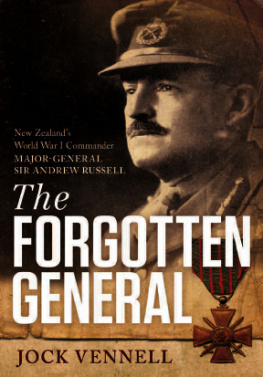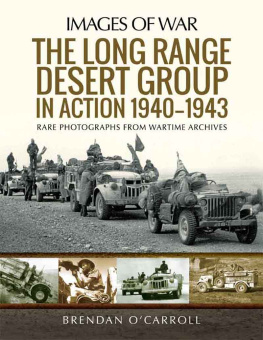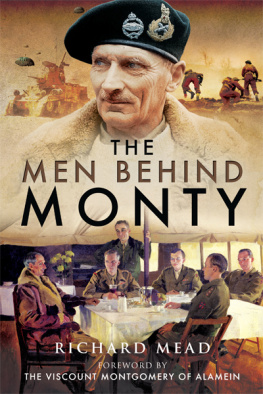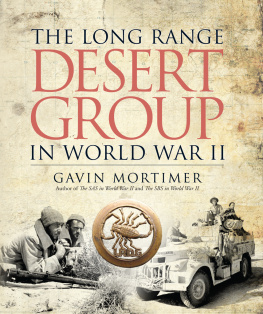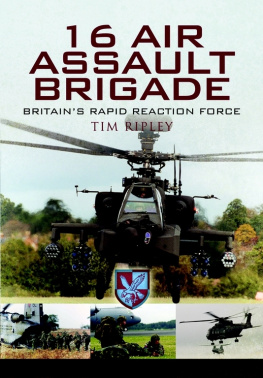First published in Great Britain in 2003 by
LEO COOPER
an imprint of Pen & Sword Books Ltd
47 Church Street, Barnsley
South Yorkshire, S70 2AS
Copyright Roy Fullick, 2003
ISBN 0 85052 975 1
ISBN 978 1 78303 693 6
A catalogue record for this book is available from the British Library.
Typeset in 10.5/12.5pt Plantin by
Phoenix Typesetting, Burley-in-Wharfedale, West Yorkshire
Printed in England by
CPI UK
ACKNOWLEDGMENTS
The first debt of gratitude that must be freely acknowledged is to the subject of this book himself. Shan Hacketts apparent inability to discard or destroy any piece of paper, however trivial its nature might seem, that bore on his life and times and his meticulous assembly of a great mass of material into a comprehensive archive, have provided endless opportunities for tangential and illuminating glimpses into Shans attitudes and philosophies
The examination of so much primary source material would have been a task daunting to the point of discouragement had it not been for the whole-hearted support and encouragement given by Lady Hackett and her two daughters, Elizabeth and Bridget (Hope). Their willingness to draw unreservedly on vivid recollections of life in the Hackett household and, particularly in Bridgets case, her unfailing abilities in converting a tentative enquiry into the production of just the right collection of documents and photographs, considerably eased the task of attempting to draw a rounded picture of a fascinating man. I am particularly grateful to them as well as to Rex Hackett, the meticulous genealogist of the family, to Sebastian Hope, a grandson and to Isabel Drummond, a cousin.
Other documentary material in the Liddell Hart Centre for Military Archives and elsewhere within Kings College, London, was made freely available and I acknowledge fully the help given and patience shown by their staffs to a biographer not always certain of his requirements. The same was true at the Imperial War Museum, whose series of compact discs of interviews with Shan Hackett on his military career was especially valuable in supplementing the printed word with added dimensions of personality and immediacy. The RUSI, the British Army Museum, the Records and Historical Department of the Foreign and Commonwealth Office, Caroline Dalton, the Librarian of New College, Oxford, the Librarian of the Royal Military College of Science at Shrivenham and the Offices of the Home Headquarters of the Queens Own Royal Hussars were invariably supportive. Special mention must be made of the Public Record Office at Kew, where the ability of the staff to guide the visitor through an incalculable labyrinth defies credibility.
I am particularly appreciative of the help of those many individuals who had known and worked in peace and war with Shan Hackett during his lifetime. Hearing their strong and highly personal accounts made powerful testimony to the influence he must have had, and continued to have, on their own lives. It would be impossible to list in full all those who spoke so freely and, almost always, so movingly of one they had felt as much a colleague and friend as a commander or superior. Of the other survivors of 4th Parachute Brigade at the Battle of Oosterbeek who related their experiences mention must be made of Geoffrey Powell and John Waddy, both company commanders of 156 Parachute Battalion during the action and both lucid chroniclers of the battle, and of Jasper Booty, the Staff Captain. The contribution of Dr Adrian Groeneweg, director of the Airborne Forces Museum in Arnhem, was of particular value to me. His encyclopaedic knowledge of the battle and of the battlefield brought events vividly to life during a tour that must have followed every footstep taken by Shan Hackett during those few days in 1944 and could hardly have been better condusted by the subject himself. From the Dutch civilians who had direct recollection of the events that had enhulfed their townships I must single out Gerard and Roger Unger, whose Sunday walk as young children with their father was interrupted by the arrival out of the skies of 1st Airborne Division.
Of the later military career, the contributions of the late Field Marshal Lord Carver and of Generals Hugh Beach, Ted Burgess and John Strawson deserve special recognition. I have also been much aided in that portion of his life that Shan spent as Principal of Kings College by Doctor Helen Hudson, Miss Mollie Butcher and David Foskett, QC and a graduate of KCL, as well as by Patricia Methven, Chief Librarian of the Liddell Hart Centre and by Kate OBrien, the Archives Services Manager of Kings College London.
Doctor Michael Collins-Persse, past editor of the Corian, (the journal of Geelong Grammar School) and Roger Day, the Schools London correspondent, were essential in describing Shans schooldays and in the depiction of the contributions made by Shans father, Sir John Winthrop Hackett, to the development of Western Australia.
To my publisher, Brigadier Henry Wilson and my unflappable editor, Tom Hartman, I owe especial thanks for their unfailing guidance and support given at what must have occasionally been unwelcome times in their very busy lives. And finally, (where she would wish to be), to my wife Gay for her characteristic and invariable forbearance throughout it all.
Roy Fullick
London / Gloucestershire / Arnhem / Oosterbeek
2003
INTRODUCTION
The impression, which tended to be an abiding one, made by Shan Hackett was that one was in the presence of the quintessential English gentleman, born and brought up in the Shires. There were those who spent years in his company without ever varying from that estimation and who would not and could not believe it when told that the true story might be otherwise. Small in stature, ruddy in his complexion, with a neat military moustache and always impeccably dressed, whether in uniform as the cavalry officer and the general, in the subfusc of the university college principal or the tweeds of the countryman in his Cotswold mill house (he would not even come down to breakfast without wearing a tie, as his widow recounted), he radiated a persona that defied any classification other than the one that was obvious to every observer. People found themselves astonished to learn that someone, incontestably a gentleman in every proper sense of that word, was in fact an Australian of Irish descent and Norman ancestry, whose father had emigrated from his native country in his late twenties and who himself had first set foot in England at the age of nineteen to enter university. It may be supposed that his native accent, together with any obvious manifestations of an Antipodean upbringing, became submerged at New College, although Lady Hackett, who was to meet her future husband for the first time some years after he had come down from university and taken his place in his regiment, felt aware of his Australian nature from the very beginning. She, however, had the advantage of a first observation through European rather than English eyes. Be all this as it may, none of it in the slightest way diminished his underlying qualities and personality, of which his exercise during a long and brilliant career of achievement in many fields was to establish him deeply in the respect and affection not only of those who served with him but also of a great number to whom he came only by report and reputation.


